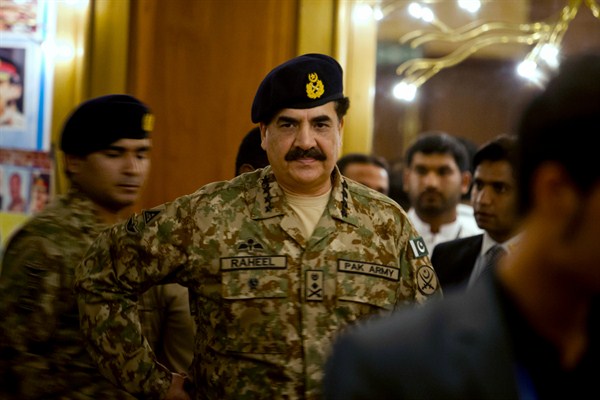Last month, as an attempted military putsch was put down in Turkey, posters lining streets across Pakistan beckoned the country’s popular army chief, Gen. Raheel Sharif, to take over in a coup. The posters have since been taken down, and the man responsible for them arrested. But the question still remains: Is the Pakistani military poised to take over?
The last time Pakistan experienced a coup, in October 1999, the context was markedly different from today. At the time, Pakistan was reeling economically, in part due to U.S. sanctions over the country’s May 1998 nuclear tests. Civil-military relations had gone into freefall after the army, without informing the prime minister, launched a reckless incursion into the Kargil region of India-controlled Kashmir, almost precipitating a fourth war between the nuclear-powered neighbors.
By contrast, today, the Pakistani rupee is stable, albeit overvalued. Economic growth is above average, with the Asian Development Bank forecasting GDP to expand around 5.6 percent this year and the next. Inflation is under control, though wages are stagnant. While exports are flagging and the manufacturing industry desperately needs to be retooled, retail and construction-related industries are thriving. Meanwhile, security conditions have dramatically improved. Civilian deaths from terrorism are at a 10-year low, and the country’s largest city, Karachi, is the safest it has been since 2008.

